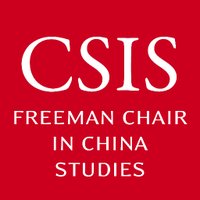
Interpret: China
@csis_interpret
A CSIS project aimed at facilitating a nuanced understanding of global strategic issues through a library of translated materials matched with expert commentary
ID: 1479539629430820864
https://interpret.csis.org/ 07-01-2022 19:47:25
1,1K Tweet
5,5K Followers
340 Following
















📅9/19; Webcast ⏰11:30-12:30pm ET How should the U.S. respond economically on “day one” of a major crisis in or around the Taiwan Strait? Join the Freeman Chair for a discussion of a recent report on this topic with authors Eyck Freymann and Hugo Bromley. csis.org/events/day-one…



